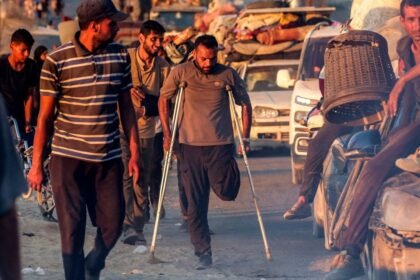Bipartisan Call to Address Extremism in the Wake of Political Violence
In a poignant discussion on the escalating political violence in the United States, Senator Chris Coons, a Democrat from Delaware, emphasized the urgent need for bipartisan dialogue to combat extremism fueled by the internet. His remarks came in the aftermath of the tragic assassination of conservative activist Charlie Kirk, who was shot and killed at Utah Valley University last week in what authorities have described as a “targeted attack.”
The Impact of the Internet on Political Discourse
During an appearance on CBS’s “Face the Nation,” Coons expressed his deep concern over the role of the internet in exacerbating political tensions. “No matter how much I might deeply disagree with his political views, the idea that he would be killed in such a grotesque and public way has to bring all of us to reflect about how hard it’s getting,” Coons stated. He underscored that the internet acts as an “accelerant” for extremism, making it increasingly difficult for individuals to engage in civil discourse.
Senator James Lankford, a Republican from Oklahoma, joined Coons in this urgent call for bipartisanship. He echoed the sentiment that social media platforms often amplify the most extreme voices, drowning out more moderate perspectives. “Social media is always pushing who’s the angriest, who’s the loudest, who says the craziest thing,” Lankford remarked. This observation highlights a growing concern that algorithms designed to maximize engagement often prioritize sensationalism over substantive dialogue.
A Call for Civil Discourse
Both senators emphasized the importance of setting aside political violence and fostering mutual respect, even amidst deep ideological divides. Coons articulated a vision for leaders from both parties to unite in urging citizens to engage in respectful discourse. “We have an opportunity to join together in urging folks to set aside any thought of political violence,” he said.
In light of these discussions, the senators pointed to legislative efforts aimed at protecting children from harmful online content. The Kids Online Safety Act, which has garnered bipartisan support, aims to mitigate some of the risks associated with internet use. Coons described the bill as essential for safeguarding families and communities from the dangers posed by online extremism.
Lankford praised the legislation, calling it a “great piece of legislation to be able to protect our kids.” He also highlighted a recent initiative in Oklahoma that bans cell phones in schools, which he claims has led to a “dramatically different” environment. “People are looking up, people are interacting, people are talking again,” he noted, suggesting that reducing screen time can foster healthier social interactions.
The Broader Context of Political Violence
The assassination of Charlie Kirk has reignited discussions about the broader implications of political violence in the United States. Utah Governor Spencer Cox described social media as a “cancer on our society” in the wake of Kirk’s death. He urged individuals to disconnect from their devices and engage more meaningfully with their communities. “Log off, turn off, touch grass, hug a family member, go out and do good in your community,” Cox advised.
Cox further elaborated on the detrimental effects of social media, asserting that it has played a direct role in numerous assassination attempts over the past several years. “There is no question in my mind that cancer probably isn’t a strong enough word,” he stated, reflecting a growing consensus among some political leaders that the digital landscape is contributing to a culture of violence.
Historical Perspectives on Political Violence
The current climate of political violence is not unprecedented in American history. From the assassination of President Abraham Lincoln in 1865 to the more recent attacks on political figures, the nation has grappled with the consequences of political extremism. The rise of social media has introduced new dynamics, allowing for the rapid spread of misinformation and incitement to violence.
Historically, political discourse has often been contentious, but the advent of the internet has transformed the landscape. The ability to communicate instantly and anonymously has emboldened individuals to express extreme views without the constraints of face-to-face interaction. This shift has raised questions about accountability and the responsibility of social media platforms to regulate harmful content.
The Role of Legislation in Mitigating Extremism
As lawmakers grapple with the implications of online extremism, legislative measures like the Kids Online Safety Act represent a proactive approach to addressing these challenges. By focusing on the protection of vulnerable populations, particularly children, legislators aim to create a safer online environment.
The bipartisan support for such measures indicates a recognition that the issue transcends party lines. Both Coons and Lankford’s collaboration serves as a reminder that constructive dialogue is possible, even in a polarized political landscape.
Conclusion
The tragic assassination of Charlie Kirk has catalyzed a critical conversation about the role of the internet in fostering political extremism and violence. Senators Chris Coons and James Lankford’s bipartisan appeal for civil discourse and legislative action underscores the urgent need for collective efforts to address these challenges. As political leaders call for a reduction in the temperature of national discourse, the responsibility lies with both lawmakers and citizens to engage in meaningful dialogue and work towards a more respectful and constructive political environment.











